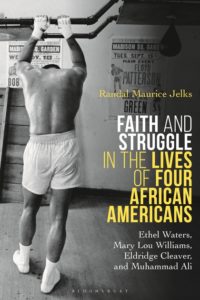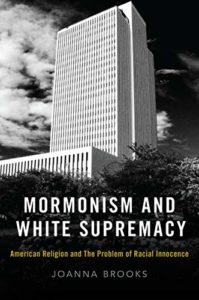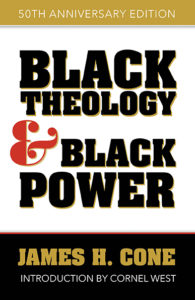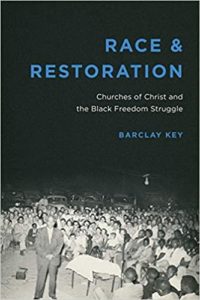 Ethel Waters, Mary Lou Williams, Eldridge Cleaver, and Muhammad Ali
Ethel Waters, Mary Lou Williams, Eldridge Cleaver, and Muhammad Ali
In Faith and Struggle in the Lives of Four African Americans, author Randal Jelks shows that to understand the black American experience beyond the larger narratives of enslavement, emancipation, and Black Lives Matter, we need to hear the individual stories. Drawing on his own experiences growing up as a religious African American, Jelks explores the faith stories of four African Americans: Ethel Waters, Mary Lou Williams, Eldridge Cleaver, and Muhammad Ali. He examines their autobiographical writings, interviews, speeches, letters, and memorable performances to understand how each of these figures used religious faith publicly to reconcile deep personal struggles, voice their concerns for human dignity, and reinvent their public image.
In 1964, Muhammad Ali said of his decision to join the Nation of Islam: “I know where I’m going and I know the truth and I don’t have to be what you want me to be. I’m free to be what I want to be.” This sentiment, the brash assertion of individual freedom, informs and empowers each of the four personalities profiled in this book. For them, liberation was not simply defined by material or legal wellbeing, but by a spiritual search for community and personal wholeness.
Reviews and endorsements of the publication include:
“[Faith and Struggle in the Lives of Four African Americans] offers a fascinating look into the religious lives of four individuals, and Jelks also weaves his own religious narrative in and out of the stories he tells.” – Anxious Bench
For more information on the publication, click here.
Fellow travelers are scholars, activists, and practitioners that embody the ideals and commitments of the Project on Lived Theology. We admire their work and are grateful to be walking alongside them in the development and dissemination of Lived Theology.


 50th Anniversary Edition
50th Anniversary Edition Churches of Christ and the Black Freedom Struggle
Churches of Christ and the Black Freedom Struggle